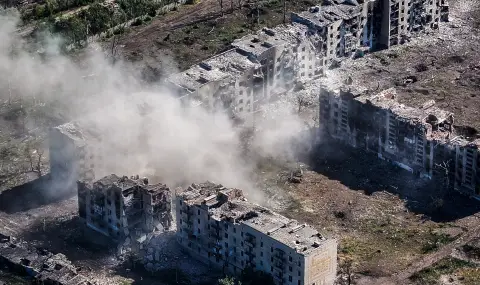Time is running out: in less than two weeks, Ukraine should pay about $20 billion owed to private creditors. The reason is that then the two-year moratorium on the payment of interest on loans taken because of the war expires.
Debt restructuring talks that took place in June between Ukraine and creditors have not been successful. Talks have since continued, but no solution has been found. In this situation, Ukraine is threatened with state bankruptcy. But there are scenarios that can prevent this, informs ARD.
Cancellation of Ukrainian debts
One of the options that Ukraine is already negotiating with private creditors is the cancellation of at least part of the amounts due. This idea is also supported by the International Monetary Fund – one of the important creditors of Ukraine.
According to data from "The Economist" Ukraine has offered private creditors a 60 percent reduction in the current value of debts. However, they rejected the proposal and accepted a maximum reduction of 22 percent. "Frankfurter Allgemeine Zeitung" describes another offer of Ukraine – to replace the old bonds with new ones, whereby the interest rate will gradually increase from one to six – but this has proved insufficient for creditors.
"It is possible that the two sides will meet somewhere in the middle," Mario Holzner, head of the Vienna Institute for International Economic Comparisons, tells ARD. Between 30 and 40 percent of the debts will probably have to be written off, because otherwise there is no chance that Ukraine will repay anything at all.
The German public-law media recalls that the G-7 countries agreed to grant Ukraine a loan of 50 billion dollars thanks to the interest on frozen Russian state capital. But this money will not come immediately or in the coming weeks, it takes time, Holtzner points out.
A further debt moratorium is possible
It is also possible that the debt moratorium will be extended once more and payments will be made at a later stage. In the case of Ukraine, this has already happened several times, ARD points out, with some of the debts dating back to before the start of the war. Because of it, Ukraine and private creditors agreed on a two-year debt moratorium.
This is also the case for sovereign creditors such as Germany, the US, Canada, France, Japan and the UK – it is valid until the end of March 2027.
However, according to Mario Holzner, it is not realistic to believe that, for example, after two years Ukraine will be able to pay off its debts. Because recovery costs alone are estimated at $500 billion. According to Ukrainian data, this year alone, 15 billion dollars will be needed for urgent restoration works.
Is government bankruptcy an option?
If Ukraine does not reach an agreement with private creditors, it could lead to state bankruptcy, i.e. to no longer be able to pay his debts, writes ARD. It wouldn't actually be that tragic for Ukraine in the short term, Holzner says. "Currently, Ukraine cannot rely on loans from the free market anyway, as the situation is too risky for creditors." Major rating agencies have already downgraded Ukraine with a high probability of default.
In the long term, however, Ukraine will have problems if it does not cover its debts in August, Holtzner told ARD. Therefore, after the war, it will be difficult for the country to get money in the international capital markets. But there are also countries that have managed in such situations – Argentina, for example, received new loans after bankruptcy in 2001. Lenders typically offset the risk of default with higher interest rates.
Holzner notes that if they do not help Ukraine in its struggle for survival, private lenders are threatened with damaging their image. "Since we are not talking about some small creditors, but about large investment companies like "Blackrock" and "Pimco" who can afford it." Western governments are also pushing for greater commitment from private lenders.
Denny Shen, an expert on Ukraine at the rating agency "Scope", told FAC that "it is neither in the interest of Ukraine nor in the interest of creditors for Ukraine to unilaterally stop servicing its debts". The country needs the creditors to finance the war and to rebuild. Overall, however, the whole situation surrounding debts to private creditors shows how strained the economic situation in Ukraine is due to the war. Therefore, Holzner recommends to think about additional financial assistance for the country - as soon as possible.
Paskal Zigelkov (ARD)
